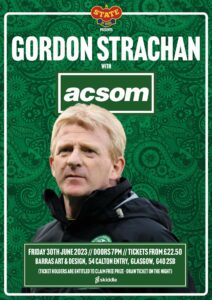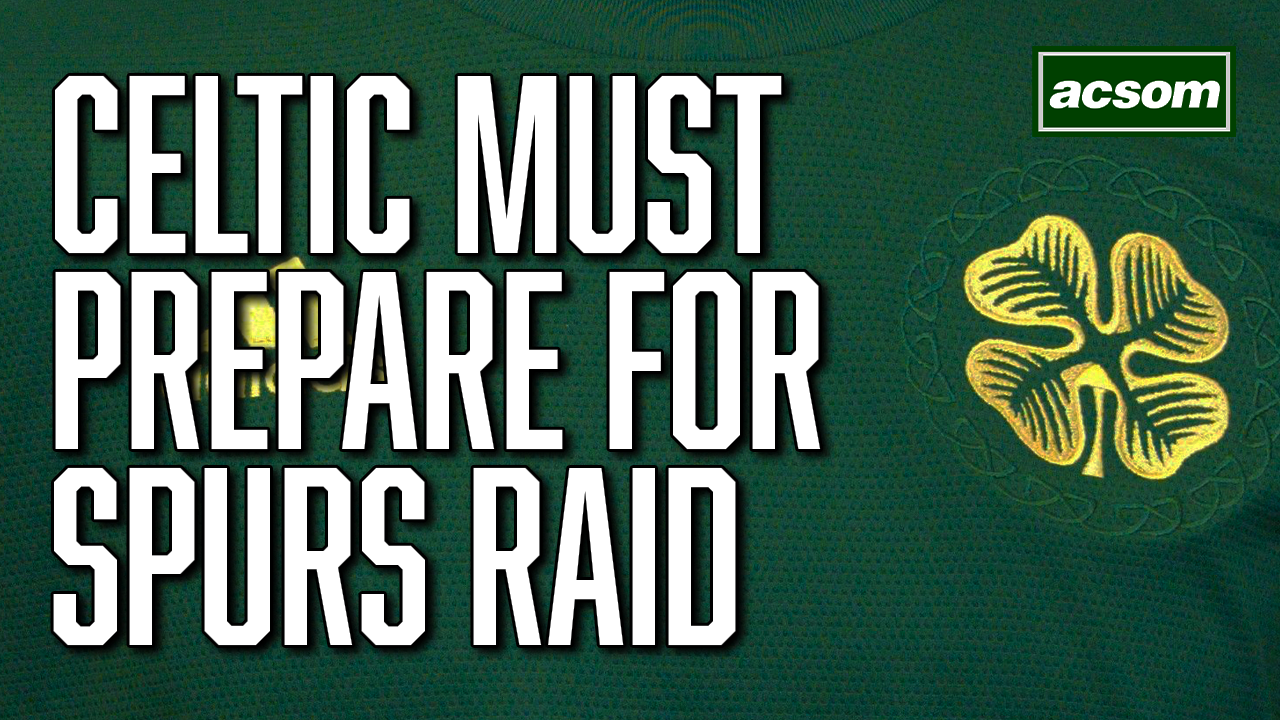“It’s pretty strong language, mate. I don’t know what your version of catastrophic is but it certainly doesn’t fit my definition of what happened tonight.”
These were the words of Ange Postecoglou, fresh from being knocked out at the qualification stage of the Champions League by FC Midtjylland.
The BBC’s Liam McLeod had made the fateful mistake of uttering “catastrophe” when describing Celtic’s extra-time defeat in Denmark, and it unleashed a side to Ange we hadn’t witnessed in the 48 days since he took over the manager’s job at Parkhead. It was a side that Celtic fans would see regularly, however, once the Australian got into his stride.
After the 2-1 second-leg defeat, Ange shared his frustrations on the lack of new signings he had at his disposal, saying, “I’m the person that’s been put in charge and if we haven’t got players in, obviously I haven’t done a good enough job of convincing people we need to bring people in. I don’t say that because I’m some kind of martyr; I just think that’s my responsibility.”

WALKING INTO A CATASTROPHE
Celtic’s line-up that night really illustrated the extent of the rebuild Ange had taken on: Bain, Ralston, Taylor (Montgomery), Welsh, Murray, Turnbull (Ajeti), Soro (Rogic), McGregor, Abada (Forrest), Edouard, Christie.
In just his second game in charge, Postecoglou made two changes to the line-up who had faced Midtjylland eight days earlier.
The hapless Vasilis Barkas was dropped for Scott Bain after his usual lacklustre performance desperately highlighted the need for a replacement keeper.
Nir Bitton, already playing out of position, was suspended following his unnecessary red card, leaving Celtic with 18-year-old Dane Murray and 21-year-old Stephen Welsh to make up the centre of defence.
Not to mention a striker in Odsonne Edouard who looked as though he’d rather be anywhere else than fighting for a Champions League place for Celtic.
Three days after Celtic exited the Champions League with the lamest of whimpers, Ange lost his opening league game against Hearts at Tynecastle – the first in a sequence of three away games Celtic lost in the league. The doubters were doubting, the naysayers naysaying… Then Ange turned things around in quite dramatic fashion, but just how did the Greek-Australian do it?
Yes, he had his style of playing out from the keeper, the high-tempo, high-pressing, the ‘we never stop’ mantra, the deployment of inverted full-backs, and his familiar 4-3-3 formation. But all of this would have been impotent without the players to fit the system.
Out went Jack Hendry, Vakoun Issouf Bayo, Kristoffer Ajer, Ryan Christie and Odsonne Édouard for a combined fee of over £33m.
Just under £23m was reinvested in the squad, with the pick of the bunch instantly becoming indelible fixtures in the side we now unmistakably identify as ‘The Team That Ange Built’ in his first double-winning season.
Joe Hart was brought in for a little over £1m having won everything in English football with Manchester City. The England veteran fell out of favour at the City of Manchester Stadium under Pep Guardiola, resulting in loan spells at Torino and West Ham before being unceremoniously offloaded to Burnley in 2018. By the time Celtic decided to make him part of Ange’s revolution, Hart was languishing as third-choice keeper at Spurs.
Josip Juranović cost £2.5m from Legia Warsaw, where he had been a team-mate of former Celtic cult icon, Artur Boruc. The Croatian international came in as an apparent ‘upgrade’ on Anthony Ralston, whose Lazarus-like comeback in a Celtic jersey was the surprise of the season. Juranović was utilised on both sides of the pitch as an inverted fullback where his pace and ball retention were huge assets. Josip could also strike a ferocious penalty, as his first goal for the club against Real Betis in a 4-3 Europa League defeat testified.
Greg Taylor had been at Celtic for 18 months prior to Ange’s arrival, but only won over the Celtic fans following his performances as an inverted fullback under Postecoglou. Like Ralston on the other side of the park, Taylor looked like a player reborn, as he became a staple fixture in Ange’s starting XI.
Carl Starfelt cost £4m when he was prised from Rubin Kazan just in time for Celtic’s league opener against Hearts at Tynecastle. Often the subject of criticism, Starfelt played on his unnatural left-hand-side of central defence but went on to build the strongest defensive partnership in Scotland alongside Cameron Carter-Vickers.
Cameron Carter-Vickers had endured something of a nomadic career by the time he landed in the east end of Glasgow on the final day of the summer transfer window. Celtic became the American international’s seventh loan destination out of parent club, Tottenham, but the Parkhead fans instantly saw enough to recognise his defensive qualities. Carter-Vickers quickly became indispensable and a must-buy at the end of Ange’s first season in charge.
Callum McGregor was handed the captaincy and a new lease of life by Ange Postecoglou. McGregor’s previous season had arguably been his worst in a Celtic jersey, but he was our metronome in 2021/22, often dragging the team out of a hole and being the living embodiment of the ‘we never stop’ culture. A facial injury sustained against Alloa Athletic in January 2022 resulted in McGregor wearing a protective mask for half the campaign. This did not impinge on the captain’s performances, however, as he inspired us to a league and League Cup double.
Reo Hatate was part of a Japanese trio who arrived during the January transfer window. The fee of around £1.4m paid to Kawasaki Frontale quickly looked like the steal of the century as the midfielder displayed a class several levels above his transfer bracket. Although his form dipped due to mental and physical exhaustion near the end of a grueling campaign, Reo had shown enough to whet the appetite of Celtic fans keen to see more in season two.
Matt O’Riley had been coached by ex-Celt Peter Grant whilst at Fulham as a teenager. The versatile midfielder took the bold decision not to sign a new deal with The Cottagers in the summer of 2020, which resulted in him being without a club for six months before signing for MK Dons. It was whilst playing in England’s third tier that he came to the attention of Celtic, who picked the Danish Under-21 international for a cut-price £1.5m. The form of O’Riley and Hatate kept David Turnbull out of Ange’s reckoning for the remainder of 2021/22.
Liel Abada was a revelation in his first season at Celtic. The 19-year-old scored the first competitive goal under Ange Postecoglou, going on to score and create 25 more mainly from a right-wing position. Abada had a deft habit of ghosting in at the back-post when defenders had switched off, and it was no surprise that English suitors almost immediately took notice of the Israeli international’s performances.
Jota came in on loan from Benfica, where he once had a £75.5m release clause in his contract. Thankfully for Celtic, when the time came to sign him permanently, we were able to negotiate a substantially lower fee for our superstar from Portugal. Now a bonafide fans’ favourite, Jota has even been known to rub shoulders with supporters in the Brazen Head. Adept on both wings, Jota was replaced by the tireless Daizen Maeda when not deployed on the left.
Kyogo Furuhashi scored a memorable double against Hibs in the League Cup final, even though he was far from being 100% fit. He ended the season as top-scorer, despite missing a chunk of the campaign through injury, and offers so much as Celtic’s talismanic forward. When injured, Kyogo was replaced by Greek international, Giorgos Giakoumakis, who offered something completely different from his Japanese counterpart.
The turnaround from those catastrophic early days into double-winners in Ange’s first season in charge of Celtic exceeded the expectations of most. The fact that Ange did it whilst raking in a profit of £10m is proof that he is not a ‘chequebook manager’.
He went one better, of course, in his second season with an emphatic treble win. We are left to wonder, however, just how Ange would have strengthened further in his third campaign, as the filthy lucre almost inevitably reared its ugly head in the shape of Spurs.
Ange’s shrewd recruitment was the main reason behind his first-season success at Celtic, but he is now operating in a different stratosphere at Spurs where he’ll never pick up players with the quality of Hatate or O’Riley for a combined fee of under £3m. If he is planning a raid on those two then he’ll need to cough up more like ten times that amount.
PAUL JOHN DYKES




Leave a Reply
You must be logged in to post a comment.